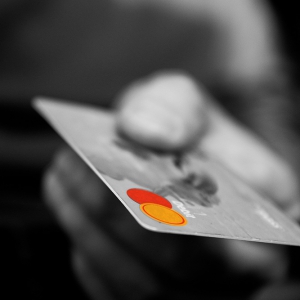 Money is a tool that allows us to acquire things we need for our families’ survival: food, housing, and clothing. Are you familiar with Maslow’s hierarchy of needs? Think of the first two tiers — “basic” needs. This is what many people feel reflects their own spending habits, from a high level, in terms of “why” they spend. But the reality is much different.
Money is a tool that allows us to acquire things we need for our families’ survival: food, housing, and clothing. Are you familiar with Maslow’s hierarchy of needs? Think of the first two tiers — “basic” needs. This is what many people feel reflects their own spending habits, from a high level, in terms of “why” they spend. But the reality is much different.
What affects our spending habits the most?
When we get down to forces that affect our spending in the real world, it’s a very different story. Emotions are one of the strongest, if not the strongest influence on our spending habits.
In many ways, we retain a lot of our views on making purchases from when we were kids – remember when you were at the checkout lane at Publix, and you just HAD to have that bag of candy? And of course, how you felt when your parents said no? (Or how about as an adult, craving that sugary $5 coffee drink and the chocolate bar add-on even though you know you’re over budget.)
 The risk of ignoring your spending habits
The risk of ignoring your spending habits
In other words, in most areas of our life, we spend money on what we value. If you opened your bank statement to be seen by a stranger (please don’t do this, it’s just an example), would they begin to see what you really care about from the pattern of your spending? Would they see travel, generosity, home expenses, entertainment, or savings?
In any case, the risk of not knowing the “why” of our spending habits — besides the money — is the unnecessary stress caused by a lack of balance.
Creating better spending habits
The key to balancing budgets (and good spending habits) is to manage our emotional responses to the things we want and need. Here’s some tips that I’ve found useful in my life to help curb my spending.
- Remember that your future has a distinct value. A sound financial future means less stress today. You’re worth it! Keeping this in mind can help shape your buying decisions – i.e., “do I really need this right now? How much would this be worth in 30 years if I saved it instead?”
- Remember the time it took to earn your pay. Time is our most precious resource, perhaps more precious than money. But it takes time to earn money, and it’s key to keep this top of mind. Do you sacrifice family time for your job? How stressful or challenging is your work? Putting this into perspective might help you curb spending to the things that really matter, i.e. “I spent 4 hours in pointless conference calls to buy this?”
- Remember the 50/30/20 rule of budgeting. This common rule is a simple litmus test to find the balance in your budget. What is the 50/30/20 rule? It means: 50% of your net earned income for necessities (like your mortgage or rent), 30% for discretionary (fun, shopping) and 20% for savings (both long and short term)
 The reward of controlling your spending
The reward of controlling your spending
Certainly, we have to enjoy our lives and spend on not only what we need, but the things we enjoy. However, the reward of being more disciplined in our spending overall is a sound financial future – and the stress reduction that comes with it!
June 2018
Content in this material is for general information only and not intended to provide specific advice or recommendations for any individual. No strategy assures success or protects against loss. Investing involves risk including loss of principal.

 The risk of ignoring your spending habits
The risk of ignoring your spending habits The reward of controlling your spending
The reward of controlling your spending


